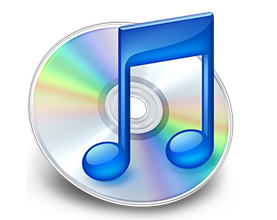 The headlines were pretty jarring . . .
The headlines were pretty jarring . . .
“Apple threatens to shut down the iTunes Store over royalty rate increases”
“Apple threatens to shut down iTunes Store (really!) if forced to pay higher rates”
“Apple’s digital music showdown” … “an Apple threat to close iTunes looms”
Huh? What gives?
Seems that the Copyright Royalty Board, a three-judge panel that oversees statutory licenses granted under federal copyright law, is expected to rule Thursday on a request by the National Publishers’ Association to increase royalty rates paid to its members on songs purchased from online stores like iTunes.
The publishers’ association wants rates increased from 9 cents to 15 cents a track. At the same time, the Digital Media Association, which represents digital music stores, wants rates lowered to 4.8 cents per track.
Apple, the No. 1 music seller in the world, accounts for 85 percent of digital songs sold. It pays an estimated 70 percent of digital music revenue to record companies, who pass on a percentage to artists.
Eddy Cue, an Apple vice president, filed a statement with the board around April 2007 — why it’s coming to light now is anybody’s guess — said, “If the [iTunes Store] was forced to absorb any increase in the . . . royalty rate, the result would be to significantly increase the likelihood of the store operating at a financial loss — which is no alternative at all.
 “Apple has repeatedly made it clear that it is in this business to make money, and most likely would not continue to operate [the store] if it were no longer possible to do so profitably,” Cue said. [via Fortune]
“Apple has repeatedly made it clear that it is in this business to make money, and most likely would not continue to operate [the store] if it were no longer possible to do so profitably,” Cue said. [via Fortune]
It’s highly unlikely that Apple will shut down iTunes. The store has been the centerpiece of Apple’s iPod ecology since the beginning. Apple just didn’t manufacture a digital audio device, it created hardware, software (iTunes), commerce (iTunes Store) and a complete, enjoyable consumer experience. Nobody has come close to duplicating it.
But this situation does highlight how utterly screwed up and out of control the music industry is — that in the face of slowing music sales of physical product it would want or allow Apple to shut down the No. 1 digital music store. iTunes is responsible for 5 billion digital songs bought to date, with another 2.4 billion songs expected to be sold this year.
Unfortunately, if the rates increase, somebody will have to cough up the dough: either Apple, the record companies, or the consumer. All of these (with maybe the exception of Apple) have financial woes of their own, especially with the current U.S. financial crisis.
Apple, to its credit, has stood steadfast with its pricing scheme of 99 cents per track, or $9.99 for most albums, even in the face of stiff criticism from the music industry and labels and solid competition from the likes of Amazon and its DRM-free MP3 store and now, maybe, MySpace Music.
Expect some deal to be made to avoid yet another meltdown. After all, U.S. political officials and governing bodies saw this week just how pissed off consumers and the markets can be if deals fail.

I’m confused? Who are these Publishers? And their members? And why aren’t they being paid by the recording companies? What do they do that deserves compensation?
I am wondering the same thing as David…
Can someone please explain why iTunes has to pay publishing royalties and it is not something that labels do on their end? If an independent artist does not have a publishing deal and they sell a track on iTunes, why does 9-15 cents get sent to publishing?
Thanks for your help.
@ Dave Mackey, bluejonhi
The publishers are the ones who own the rights to the composition as aposed to the recording. If you’ve written and recorded a song, and still own the publishing rights, you get paid as both the artist and composer.
Or, if you record a cover of somebody else’s song, you have to pay the publisher a royalty. Hence acts who only perform other peoples material (the manufactured acts such as Britney etc.) don’t make nearly as much money as you’d think.
Why are they increasing royalties only in the selling of digital music over the net, and not the royalties on CDs and other forms of distribution?
It is obvious that the record industry is opposed to the seemingly ‘digital revolution’ over the internet, and this move appears like a stealthy move to try and drive up digital muisc prices (Apple are already selling these tracks at rock-bottom prices and just about break even) and try to starve off the growth of the digital music distribution industry. Steve Jobs has been adamant about the famous 99c pricing policy, even when the record companies wanted it much higher than that, to ‘pay for the privilage’ that digital music affords. Whilst they eventually succombed, this latest develpoment just seems to be a ploy to drive up prices by a seemingly innocuous source – hey, who wouldn’t want artists getting a fairer share of their music? They know apple can’t remain financially viable on their 99c plan, so they are now in a dillema – either keep selling tracks at their famous price and hope that iPod sales can carry the financial gap, or back-track on the commitment to the public and raise prices which might be effective enough to slow down digital sales, at least for the moment. They want people to buy overpriced CDs because that’s where they’re making most of their money, and assumedly, the Publishers Association is in the same position.
I think